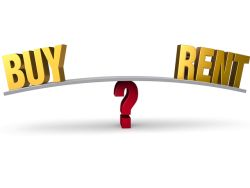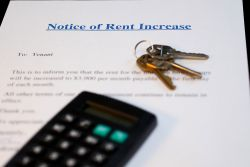Every growing business throughout its life cycle is confronted with the important decision to continue leasing or own the premises in which it operates.
 Anderson says entrepreneurs considering this type of investment should seek advice from their banks or financial advisors to familiarise themselves with the advantages and disadvantages of owning commercial property.
Anderson says entrepreneurs considering this type of investment should seek advice from their banks or financial advisors to familiarise themselves with the advantages and disadvantages of owning commercial property.“Before this decision can be made, entrepreneurs should aim to understand the implications and establish whether this would be a good investment from a financial and long-term growth perspective,” says Attie Anderson, Head of Commercial Property Finance at FNB.
“Being in a strong financial position to invest in commercial property should be every business owners’ aspiration. However, not every business model supports owning commercial property. For some businesses, it may be better to lease.”
Anderson says entrepreneurs considering this type of investment should seek advice from their banks or financial advisors to familiarise themselves with the advantages and disadvantages of owning commercial property.
Anderson shares insight on the pros and cons of investing in commercial property:
Pros
1. Owning commercial property that increases in value can be a great investment for entrepreneurs that want to diversify or sell in the future.
 Operating a business from your own premises gives you peace of mind knowing that you do not have to worry about lease renewals and hefty rental increases.
Operating a business from your own premises gives you peace of mind knowing that you do not have to worry about lease renewals and hefty rental increases.2. Operating a business from your own premises gives you peace of mind knowing that you do not have to worry about lease renewals and hefty rental increases.
3. Should the business grow and require additional space, there is an option to renovate or extend the building.
4. Financing commercial property eventually becomes less expensive in the long term.
5. Entrepreneurs have an option to refinance the property should they require additional capital to grow the business.
6. There is an option to sublet a portion of the building and earn additional revenue.
Cons
1. Investing in commercial property can tie up the cash flow of a business, due to poor financial planning.
 The overall value of the investment will decrease should the property deteriorate or depreciate.
The overall value of the investment will decrease should the property deteriorate or depreciate.2. Operating from a fixed location can be a disadvantage should the business be required to relocate.
3. Selling commercial property can be challenging during tough economic conditions.
4. The business is directly responsible for the management and maintenance of the building.
5. If the business does not perform well, this may potentially impact its ability to honour financial commitments on the building.
6. Managing tenants and building risks can be cumbersome, requiring business owners to seek professional assistance.
7. The overall value of the investment will decrease should the property deteriorate or depreciate.
“A one-size-fits-all approach will not work when it comes to commercial property investments, the decision has to be weighed on its own merit,” says Anderson.
“Once factors such as cash flow, market conditions, value, location and the long-term prospects of the business have been considered, only then can an informed decision be made.”








